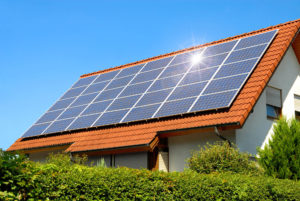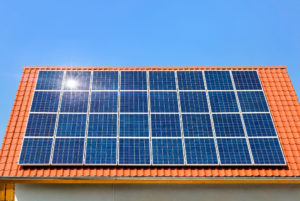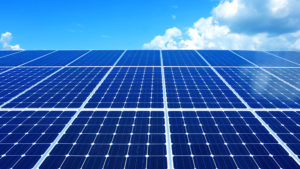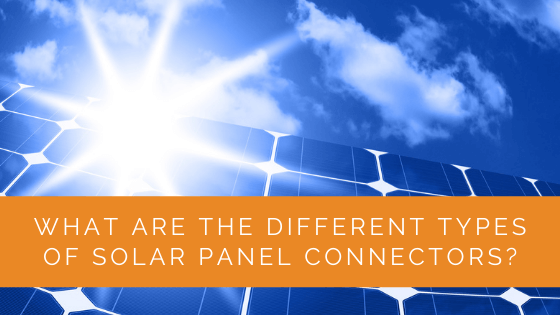Planning to go solar and all set to install your solar panel? The basic components you’ll need are your solar panel, solar charge controller, inverter, and batteries. To power up your entire home with solar energy, you need to connect these components together.
This is where solar connectors come in. They help in connecting the solar panels with each other and to the inverter. The most common types of connectors include MC3, MC4, and Radox.
The type of solar connectors can differ based on the solar panel systems and modules. So, we’ll talk about the different types of connectors in this article and their differences to make the setup easier.
Contents
- 1 Key Takeaways
- 2 What are Solar Connectors?
- 3 Types of Solar Panel Connectors
- 4 Are all Solar Panel Connectors the Same?
- 5 Are Solar Panel Connectors Durable?
- 6 Case Study: Choosing the Right Solar Panel Connectors for Optimal Performance
- 7 Expert Insights From Our Solar Panel Installers About Different Types of Solar Panel Connectors
- 8 Experience Solar Excellence with Us!
- 9 Summing Up
Key Takeaways
- Solar panel connectors are essential for connecting solar panels, charge controllers, inverters, and batteries in a solar panel system. They ensure a steady flow of current and simplify the installation process.
- There are various types of solar panel connectors, including MC3, MC4, Radox, and Helios H4, each with its unique features and applications. MC4 connectors are commonly used and offer compatibility and durability.
- Solar panel connectors are not all the same; they vary based on their application, safety, durability, and compatibility. MC4 connectors, known for their versatility, are considered a universal choice. Solar panel connectors are generally durable and capable of withstanding harsh environmental conditions, with some having high IP ratings like IP67.
What are Solar Connectors?
Solar panel connectors simplify the installation process by ensuring a steady flow of current. They make sure all components are properly connected and well-balanced. This way, electricity flows from the panels to the charge controller, then goes to the solar inverter.
After that, the generated power reaches all the appliances through the wires, and they’re lit up! Solar panel connectors prevent any issues during the installation process and speed it up.
Generally, these devices are attached at each wire’s end, which allows you to configure the solar module as you wish. It makes your life simpler while installing additional solar panels.
Rearranging modules in a series or parallel is also convenient when using solar panel connectors. Other important features of solar panel connectors are –
- These devices are important when a combiner box is used for elaborate solar panel systems
- They’re used in DC-based and AC/microinverter projects
- Solar connectors offer a low-resistance contact point for other components
- They help in maintaining the voltage and current requirements
- Solar connectors withstand thermal cycling and extreme temperatures
- Prevent mechanical faults and disconnections
Solar panel connectors can handle electrical fluctuations and shortages. So, they play a major role in extending the lifespan of your solar panel system.

Types of Solar Panel Connectors
To ensure the proper organization of your solar panel and solar energy utilization, you need to install the right connector. Also called non-connector junction boxes, many versions of solar panel connectors are currently in use. Let’s take a closer look at the types.
MC3 Solar Panel Connector
MC3 connectors are probably the oldest types of solar connectors and are a type of single contact device. The name comes from their original manufacturer, Multi-Contact, and is considered a simple option.
These devices are generally rated at a maximum of 600V and 20A, although this varies according to the system. You will observe that they come with a waterproof seal, having a female and male type. The variation is created to reduce the chances of connection problems.
The male and female lead act as the positive and negative leads in an electrical system. However, these leads help you understand where wires and cables go and where they originate.
During the installation and usage, MC3 connectors are connected to a diameter cable, which is UV-resistant.
Other salient features of an MC3 connector include –
- It consists of a cylindrical single contact plug for male leads
- For female connectors, these connectors come with a socket shell construction
- These connectors have a 3 mm contact pin
- Many devices consist of a waterproof rating such as IP67 or IP68
- They are reliable and durable products used all over the world
MC4 Connector
MC4 connectors are single contact solar connectors which are the updated version of MC3 connectors. These devices are used in most solar panel systems and stand for Multi-Contact 4 mm. As their name suggests, they were also developed by the company Multi-Contact.
With these devices by your side, arranging a string of solar panels is easier. This assembly is possible by pushing the connectors of adjacent photovoltaic panels by hand. The crucial components include –
- A metallic crimp contact
- A seal retainer
- Rubber water seal
- A screw on the end cap
- Some products come with safety lock clips (removable)
Being one of the most compatible connectors, most large solar panels come equipped with MC4. It consists of a cylindrical plug placed inside a socket shell, acting as the female end. A different metal contact and housing are used for the male end.
MC4 connectors can shield the interlock tabs and prevent misconnections. That’s why they are used in small, medium, and even large solar systems to strengthen the connections. When a battery bank or combiner box is used, an MC4 connector will come in handy.
Important characteristics of MC4 connectors include –
- An MC4 connector will be useful when you’re crimping solar wires
- You’ll need a crimp tool and disconnect spanner to work with these
- They’re usually waterproof, UV resistant, and withstand harsh climates
- They also come with an ingress protection of IP68 and impedance lower than 0.5 ampere
- MC4 connectors can terminate each other using a notched interlock
SolarLok Connector
SolarLok is an outdated electrical connector that was used in constructing solar panel systems. They are popular for providing simple and reliable connections. Developed by Tyco International, these connectors are also called Tyco SolarLok, and have these features –
- They were used for connecting the cables of a panel in series or in parallel.
- These devices were initially introduced in the USA to meet the National Electrical Code back in the 2000s.
- Tyco SolarLock connectors were usually installed at the end of a panel’s wiring. This enabled electricians and engineers to plug panels together easily.
- The positive and negative terminals were not determined following a standard. So, they were chosen at random.
Due to some complications in installation, you can only find Tyco SolarLock in older panels. Tyco SolarLok was overthrown by modern connectors such as MC3 and MC4.
If you come across older solar systems, you might find a SolarLok or two.

Helios H4 Connector
These solar connectors come with a modern design and are manufactured by a company called Amphenol. Famous for their durability and efficiency, these connectors are compatible with an MC4 connector. These devices consist of reliable and sturdy crimp terminations.
So, if you want to install solar panels at home, Helios H4 will offer hassle-free service. Connecting various modules will also be convenient with this tool.
It is a cost-effective and reliable solution that is great for serving the needs of low-loss power transfers. Plus, these tools are fully intermateable, so they work with complementary components without issues.
This solar connector meets all NEC 2008 regulations and is completely RoHS compliant, even with a high current rating. So, when it comes to safety and protection, it is one of the top products in the industry.
Some of the important specifications of Amphenol Helios H4 include –
- Low contact resistance, so lesser power loss
- The easy and quick snap-lock mating system makes it excellent for field installation
- Ozone and UV resistance ensures durability
- The unlocking tool also matches NEC requirements
- Consists of a contact grid with a self-cleaning feature
- As no assembly is needed, you won’t lose many small electronic parts
Radox Solar Panel Connectors
These are outdated connectors that come from the manufacturers Huber + Suhner. They were one of the brand’s top products.
You might observe this electric connector in an old solar panel system where it was used to connect the modules in series. It helped in forming a string and was widely applied for REC solar panels.
If you manage to find it, you’ll see that it has a contact element in the housing. These contacts had a lamella design and were manufactured using industry-grade copper-beryllium. The contacts worked as the mechanical adjustments between the socket and the plug.
The lamella provided a large contact surface for the cables and wires, allowing a high current load capacity. In addition, it offers a low transition resistance, making the device even more effective.
Although not being able to prosper in the US market, certain features of the Radox connector set them apart –
- The lamella allowed an easy transfer of current between the wires
- The low contact resistance in wiring enhanced security
- Corrosion resistance and smaller in dimensions
- High impact resistance or mechanical endurance
- UV and Ozone protection
- IP67 protection mode
They offered decent performance when they were in use but sadly did not meet the US industry standards. Thus, the brand was outrun by-products such as SolarLok and MC4 connector; and vanished from the market.
Are all Solar Panel Connectors the Same?
No, they are not the same. Many people used to think all connectors were similar as older PV modules supported multiple connectors. But, slowly, panels got advanced, and their specs changed. As a result, some popular products like Radox and MC3 became obsolete, creating confusion among users.
Some offer excellent compatibility like MC4, while others provide excellent UV and Ozone resistance, like Amphenol Helios H4.
You have to remember that these connectors vary based on their application, safety, durability, and compatibility. As MC4 connectors have very little competition for all these factors, you can consider it a universal connector.

Are Solar Panel Connectors Durable?
Yes, solar panel connectors are extremely sturdy and long-lasting devices. A durable connector will keep the modules together for a longer time.
So, to understand a connector’s durability, you need to check its IP index, consisting of two numbers. The first number signifies durability against solids, and the second number represents liquid protection (waterproof).
A rating of IP67 represents excellent durability, which you can find in MC4 connectors. Most of these devices are capable of withstanding severe climatic conditions. Moreover, MC4 connectors can also be submerged up to 3 feet in the water and still work fine!
Case Study: Choosing the Right Solar Panel Connectors for Optimal Performance
Background
At Solar Panels Network USA, we understand that every component of a solar energy system plays a vital role in its overall performance and efficiency. One often overlooked but critical component is the solar panel connector. This case study explores how we helped a commercial client select the right connectors for their large-scale solar installation to ensure optimal performance and safety.
Project Overview
Our client, a commercial property owner, planned to install a large solar energy system to power their office building. Given the scale of the project, choosing the right type of solar panel connectors was essential to ensure the system’s efficiency, reliability, and ease of maintenance. The client sought our expertise in selecting connectors that would provide secure and durable connections.
Implementation
We began by assessing the specific requirements of the client’s solar energy system, including the types of solar panels and inverters being used. Based on this assessment, we recommended using MC4 connectors, which are known for their robust design and ease of use. These connectors are also widely accepted in the industry and compatible with most solar panels and inverters.
Key Steps Taken:
1. Selection of MC4 Connectors: We chose MC4 connectors due to their high current-carrying capacity, waterproof design, and UV resistance. These features are crucial for ensuring the durability and efficiency of the solar system in an outdoor environment.
2. Compatibility Check: Ensuring compatibility between the connectors and other system components was a priority. We verified that the MC4 connectors were compatible with the client’s solar panels and inverters to avoid any potential issues during installation.
3. Secure and Efficient Installation: Our team provided comprehensive training to the installation crew on the proper use and installation of MC4 connectors. This included techniques for secure connections to prevent issues such as loose connections or electrical faults, which can impact system performance.
Results
The implementation of MC4 connectors in the client’s solar energy system resulted in several positive outcomes:
Improved Efficiency: The secure connections provided by MC4 connectors minimized power losses, enhancing the overall efficiency of the solar energy system.
Increased Reliability: The robust design and waterproof features of the connectors ensured reliable performance, even in adverse weather conditions.
Ease of Maintenance: The use of standardized MC4 connectors simplified maintenance and future expansions of the solar system, as these connectors are widely used and readily available.
Positive Client Feedback: The client reported high satisfaction with the performance and reliability of the solar energy system, attributing part of the success to the quality and suitability of the connectors used.
Summary
This case study highlights the importance of selecting the right type of solar panel connectors to ensure the optimal performance and reliability of a solar energy system. At Solar Panels Network USA, we are dedicated to providing tailored solutions that meet our clients’ specific needs, ensuring every component of their solar installation is chosen and implemented with care. By focusing on high-quality connectors like MC4, we help our clients achieve efficient, reliable, and long-lasting solar energy systems.
Expert Insights From Our Solar Panel Installers About Different Types of Solar Panel Connectors
As an experienced solar installer, understanding the various types of solar panel connectors is crucial for ensuring a safe and efficient system. The MC4 connector, known for its reliability and ease of use, is the industry standard and widely used in residential and commercial installations.
Senior Solar Technician
The choice of solar panel connectors significantly impacts the overall performance and maintenance of the solar system. Using high-quality connectors like MC4 and Amphenol H4 ensures minimal power loss and secure connections, which are essential for the system’s longevity.
Solar Installation Expert
Properly selected and installed solar panel connectors enhance the system’s safety and efficiency. It’s important to use connectors that are compatible with your solar panels and inverters to avoid issues such as overheating or electrical faults.
Lead Solar Engineer
Experience Solar Excellence with Us!
Trust in Solar Panels Network USA, where our seasoned experts deliver top-quality solar solutions for homes and businesses nationwide. With a legacy of countless successful installations and a commitment to sustainable energy, we’re your reliable partner in the solar journey. Ready for a brighter, eco-friendly future? Call us now at (855) 427-0058 and harness the power of the sun!
Summing Up
Solar panel connectors are irreplaceable components of PV systems. Using these devices, you can connect your panels in series, parallel or series-parallel. No matter what you choose, solar connectors will keep all the components securely connected.
So, before buying a connector, take a look at its IP index, safety features, maximum voltage output, and electric load capacity. In addition, also check the locking mechanism for better security.
If you’re ever unsure about the product, avoid the guesswork and talk to a professional at the store. For online shoppers, check the customer reviews for more information.
About the Author
Solar Panels Network USA stands at the forefront of solar energy solutions, driven by a team of seasoned solar engineers and energy consultants. With over decades of experience in delivering high-quality solar installations and maintenance, we are committed to promoting sustainable energy through customer-centric, tailored solutions. Our articles reflect this commitment, crafted collaboratively by experts to provide accurate, up-to-date insights into solar technology, ensuring our readers are well-informed and empowered in their solar energy decisions.

